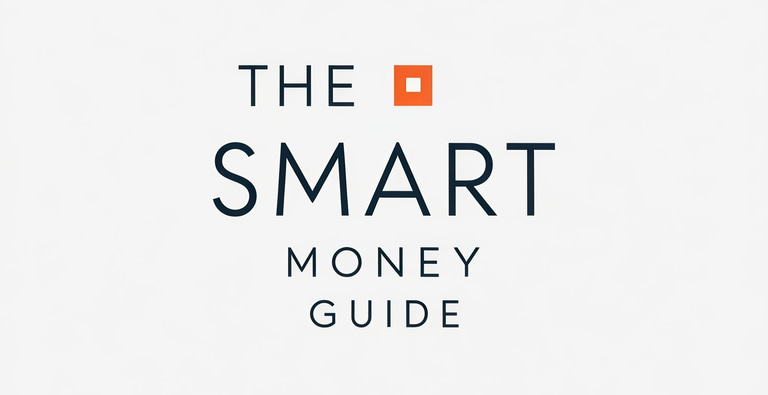A Beginner's Guide to Buying Cryptocurrency in 2025
Discover how to buy cryptocurrency safely in 2025 with our comprehensive beginner's guide. Learn about exchanges, wallets, security best practices, and investment strategies to confidently enter the crypto market and avoid common mistakes. Perfect for newcomers ready to invest in digital assets.
CRYPTO
3/13/20256 min read


In today's digital economy, cryptocurrencies have evolved from speculative investments to established financial assets with real-world utility. If you're new to the world of digital currencies and wondering how to get started, you're in the right place. This guide will walk you through everything you need to know to begin your cryptocurrency journey in 2025 and after.
Understanding Cryptocurrency Basics
What Is Cryptocurrency?
At its core, cryptocurrency is digital or virtual money that uses cryptography for security. Unlike traditional currencies issued by governments (fiat currencies), cryptocurrencies operate on decentralized networks based on blockchain technology—a distributed ledger enforced by a network of computers.
How Blockchain Technology Works
Think of blockchain as a digital ledger that records all transactions across a network of computers. Once a transaction is verified, it's added to a "block" of data, which is then linked to previous blocks, creating a "chain" of information that's nearly impossible to alter. This design makes cryptocurrencies secure, transparent, and resistant to censorship.
Key Cryptocurrency Terms You Should Know
Before diving in, familiarize yourself with these essential terms:
Bitcoin (BTC): The first and most valuable cryptocurrency
Altcoins: Any cryptocurrency other than Bitcoin
Wallet: Digital storage for your cryptocurrencies
Private Key: Your secret access code to your cryptocurrency
Public Key: Your wallet address that others can see and send funds to
Exchange: Platforms where you can buy, sell, and trade cryptocurrencies
Market Cap: The total value of a cryptocurrency (price × circulating supply)
DeFi: Decentralized Finance; blockchain-based financial services
Gas Fees: Transaction costs on blockchain networks
Getting Started: Essential First Steps
Setting a Budget and Risk Tolerance
Cryptocurrency markets can be volatile. Before investing:
Only invest money you can afford to lose
Determine what percentage of your investment portfolio should go to crypto (experts typically recommend 1-5% for beginners)
Consider your time horizon—are you investing for short-term gains or long-term growth?
Research Approaches for Beginners
Successful cryptocurrency investing requires ongoing education:
Follow reputable cryptocurrency news sources
Join community forums like Reddit's r/CryptoCurrency
Use analytics platforms such as CoinMarketCap or CoinGecko
Read whitepapers of projects you're interested in
Follow credible crypto analysts on social media
Creating a Basic Investment Strategy
Consider these common approaches:
Dollar-Cost Averaging (DCA): Invest a fixed amount at regular intervals
HODL Strategy: Buy and hold for the long term
Core-Satellite: Invest mostly in established cryptocurrencies with smaller allocations to promising altcoins
Index Investing: Invest in crypto index funds or ETFs for broad market exposure
Choosing the Right Cryptocurrency Exchange
Top Beginner-Friendly Exchanges in 2025
While the crypto landscape evolves rapidly, these exchanges have maintained strong reputations for beginners:
Coinbase: Still the go-to for beginners with an intuitive interface
Kraken: Strong security record with excellent customer support
Gemini: High compliance standards and user-friendly experience
Binance: Largest selection of cryptocurrencies with comprehensive features
FTX: Streamlined platform with competitive fees
Centralized vs. Decentralized Exchanges
Centralized Exchanges (CEX):
Operated by companies that act as intermediaries
User-friendly interfaces
Higher liquidity and trading volume
Require identity verification (KYC)
You don't control your private keys
Decentralized Exchanges (DEX):
No central authority—trades occur directly between users
You maintain control of your private keys
No KYC requirements typically
Can be more technical to use
May have lower liquidity for some assets
Recommendation for beginners: Start with a reputable centralized exchange, then explore DEXs as you gain experience.
Key Features to Look For in an Exchange
Security measures: Two-factor authentication (2FA), cold storage, insurance
Fee structure: Trading fees, withdrawal fees, deposit methods
Available cryptocurrencies: Ensure they offer the coins you want to purchase
Liquidity: Higher trading volumes mean easier buying and selling
User interface: Intuitive design for beginners
Educational resources: Guides, tutorials, and learning tools
Customer support: Responsive service when you need help
Regulatory compliance: Proper licensing in your jurisdiction
Creating and Securing Your Crypto Wallet
Types of Wallets
Hot Wallets (connected to the internet):
Web wallets: Browser-based (convenient but less secure)
Mobile wallets: Smartphone apps for on-the-go access
Desktop wallets: Software on your computer
Cold Wallets (offline storage):
Hardware wallets: Physical devices like Ledger or Trezor
Paper wallets: Physical documents with your keys printed
Recommendation for beginners: Start with a reputable hot wallet for small amounts, and invest in a hardware wallet when your crypto holdings become substantial (generally over $1,000).
Security Best Practices for Beginners
Enable two-factor authentication (2FA) on all accounts
Use unique, strong passwords for each service
Be wary of phishing attempts via email, social media, or search results
Never share your seed phrase or private keys with anyone
Keep your seed phrase written on paper in multiple secure locations
Consider using a password manager for your exchange logins
Regularly update your wallet software and operating system
Backup and Recovery Methods
Write down your seed phrase (typically 12-24 words) and store it in a secure location
Consider using a metal seed storage solution for fire and water resistance
Test your recovery process at least once to ensure it works
Set up an inheritance plan for your crypto assets
For larger holdings, consider multisignature wallets requiring multiple approvals
Step-by-Step Guide to Making Your First Purchase
Account Verification Process
Sign up with your email and create a strong password
Complete identity verification (KYC):
Provide government-issued ID
Submit proof of address
Complete facial verification if required
Verification typically takes 1-3 business days in 2025
Funding Your Account
Common funding methods in 2025:
Bank transfer (ACH or wire transfer)
Debit/credit card (higher fees but instant)
PayPal or similar payment services
Digital banking apps
Other cryptocurrencies
Tips:
Start with a small test deposit
Check for processing times and fees
Verify deposit limits for your account level
Executing Your First Trade
Select "Buy" or "Trade" on your exchange
Choose the cryptocurrency you want to purchase
Select your payment method
Enter the amount you want to buy (in your local currency or the amount of crypto)
Review the transaction details, including:
Exchange rate
Fees
Total cost
Confirm your purchase
Receive confirmation of your transaction
Confirming and Tracking Your Investment
Check your exchange balance to confirm receipt
Set up portfolio tracking apps like CoinStats, Delta, or FTX to monitor your investments
Consider moving your purchased crypto to your personal wallet for additional security
Keep records of your purchase for tax purposes, including:
Date of purchase
Amount purchased
Price paid
Fees paid
Managing Your Cryptocurrency Portfolio
Basic Portfolio Tracking Tools
In 2025, several comprehensive tracking solutions help manage your crypto investments:
CoinTracker: Automatically syncs with exchanges and provides tax reporting
CoinLedger: Specialized in tax reporting with exchange integrations
Blockfolio/FTX: Mobile-friendly with real-time price alerts
Delta: Customizable interface with extensive analytics
Spreadsheet templates: For those who prefer manual tracking
When to Hold vs. When to Trade
HODL Strategy (Hold):
Typically better for beginners
Reduces emotional decision-making
Minimizes tax events
Works well in bull markets and for quality projects with strong fundamentals
Trading Strategy:
Requires more time, knowledge, and emotional discipline
May increase short-term gains but also increases risk
Creates more tax events to track
Usually involves technical analysis and market timing
Finding balance: Many investors hold core positions in established cryptocurrencies while allocating a small percentage to more active trading.
Tax Considerations for Beginners
Cryptocurrency tax rules continue to evolve, but these basics apply in most jurisdictions:
Cryptocurrency is typically treated as property for tax purposes
Taxable events include:
Selling crypto for fiat currency
Trading one cryptocurrency for another
Using cryptocurrency to purchase goods or services
Receiving cryptocurrency as income (including mining and staking rewards)
Keep detailed records of all transactions
Consider using crypto tax software to track your obligations
Consult with a tax professional familiar with cryptocurrency
Common Mistakes Beginners Make (And How to Avoid Them)
FOMO and Emotional Trading
The mistake: Buying because of Fear Of Missing Out or selling in panic during market downturns.
The solution:
Create a clear investment strategy and stick to it
Use dollar-cost averaging to reduce timing pressure
Set price alerts instead of constantly checking prices
Focus on fundamentals rather than short-term price movements
Neglecting Security Measures
The mistake: Using weak passwords, skipping 2FA, or keeping large amounts on exchanges.
The solution:
Implement all security best practices mentioned earlier
Move significant holdings to hardware wallets
Regularly audit your security setup
Never share sensitive information, even with "support staff" who contact you
Falling for Scams and How to Spot Them
Common scams in 2025 include:
Fake exchanges with artificially low prices
"Pump and dump" schemes in smaller cryptocurrencies
Fraudulent Initial Coin Offerings (ICOs) or token sales
Impersonation scams on social media
Phishing attempts via email or messaging apps
Red flags to watch for:
Promises of guaranteed returns
Pressure to act quickly
Poor website quality or suspicious URLs
Requests to share your seed phrase or private keys
Unsolicited investment advice or opportunities
Lack of clear information about the team or project
Conclusion and Next Steps
Congratulations on taking your first steps into cryptocurrency investing! Remember that education is an ongoing process in this rapidly evolving space. As you become more comfortable, consider:
Expanding your knowledge about blockchain technology and specific projects
Exploring decentralized finance (DeFi) applications
Learning about staking and earning passive income
Participating in community governance through token voting
Contributing to open-source projects or local crypto communities
Resources for Continued Learning
Books: "The Basics of Bitcoins and Blockchains" by Antony Lewis, "Cryptoassets" by Chris Burniske
Online courses: Coursera, Udemy, and Khan Academy offer cryptocurrency courses
Podcasts: "Unchained," "What Bitcoin Did," and "The Pomp Podcast"
YouTube channels: Coin Bureau, Finematics, and Whiteboard Crypto
Communities: Local Bitcoin meetups, Discord servers, and Reddit communities
Community Resources for Beginners
Join local cryptocurrency meetup groups
Participate in online forums like Reddit's r/CryptoCurrency or r/BitcoinBeginners
Follow educational Twitter accounts and Discord communities
Attend virtual and in-person blockchain conferences
Use developer resources if you're technically inclined
Remember, the cryptocurrency journey is a marathon, not a sprint. Take your time, prioritize security, and continue learning as you build your digital asset portfolio. By starting with solid fundamentals and gradually expanding your knowledge, you'll be well-positioned to navigate the exciting world of cryptocurrency in 2025 and beyond.
Connect
Join our community for financial insights and helpful tips.
Newsletter
© 2024. All rights reserved.
Get the latest financial tips and insights.
